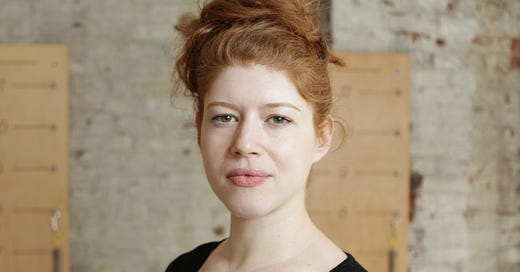"For so many people, food is such a damaged place"
An interview + special collab with movement specialist Cadence Dubus
Hello, still from upstate (legit about to WFHT—work from hot tub)! I’ve got something a little different for you today that I’m really excited to share.
Those of you who follow me for the food may not know that I have a passion for movement and a regular movement practice that involves a mix of mat Pilates, kettlebells, fascia work, stretching, breath work, and lots of walking and riding my bike. My movement practice is sacred to me—it keeps me curious about my body, helps me manage my anxiety, and informs what I crave and how I feed myself day-to-day, and in that way is so intertwined with my cooking practice; it’s cheesy, but both help bring me back to myself.





